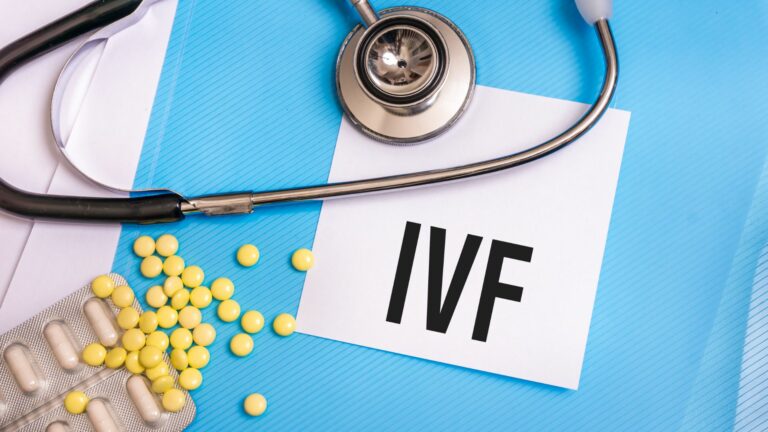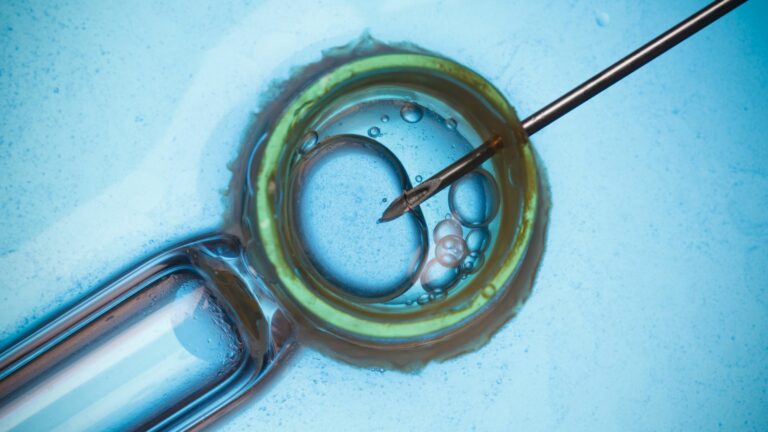
| Key Takeaways | Description |
|---|---|
| 🌿 Gentler Approach | Mini IVF uses lower medication doses for a more natural and less intensive treatment. |
| 💰 Cost Savings | Fewer medications and appointments can make Mini IVF more cost-effective. |
| 🎯 Suitable for Specific Cases | Beneficial for women with low ovarian reserve, older women, or those at risk of OHSS. |
| 🏥 Growing Availability | Mini IVF is increasingly available in India, but accessibility may vary by location. |
| 📊 Success Rates | Slightly lower per cycle than conventional IVF, but influenced by individual factors. |
| 💑 Informed Decision | Research, consult with a specialist, and communicate with your partner to make the best choice. |
| 📚 Empowering Knowledge | Gather information from credible sources to make well-informed decisions on your journey. |
Trying to conceive can be an exciting yet emotionally challenging journey. For couples facing infertility, In Vitro Fertilization (IVF) has become a beacon of hope.
However, conventional IVF often involves a significant amount of hormonal medication, which can lead to side effects and raise concerns for some patients seeking a more natural approach.
This is where Mini IVF comes in. As a potential alternative, Mini IVF offers a gentler approach to fertility treatment that may be particularly well-suited for certain individuals.
Let’s explore what Mini IVF is, its benefits and suitability specifically in India, and how to decide if it might be the right option for you.
What is Mini IVF?
Mini IVF, also known as minimal stimulation IVF, is a variation of the conventional IVF procedure that utilizes lower doses of fertility medications to stimulate egg production in the ovaries.
During a typical IVF cycle, medications are used to encourage the ovaries to develop multiple follicles, each containing an egg.
In contrast, Mini IVF aims to promote the growth of a smaller number of follicles, ideally leading to the development of high-quality eggs.
Here’s a table summarizing the key differences between Conventional IVF and Mini IVF:
| Feature | Conventional IVF | Mini IVF |
|---|---|---|
| Stimulation Medication | High Doses | Lower Doses |
| Number of Eggs Retrieved | Typically 6-15 | Typically 1-4 |
| Monitoring | Frequent Ultrasound Scans and Blood Tests | Less Frequent Monitoring |
| Cost | Generally Higher Due to More Medication | Potentially Lower Cost |
By using a reduced amount of medication, Mini IVF offers several potential benefits, which we’ll explore in the next section.
Benefits of Mini IVF
Mini IVF offers several compelling advantages compared to conventional IVF, including:
- Reduced Medication Side Effects: The lower doses of fertility hormones employed in Mini IVF can minimize potential side effects such as bloating, mood swings, and ovarian hyperstimulation syndrome (OHSS). OHSS is a serious condition that can occur when the ovaries become overstimulated.
- Potentially Lower Cost: As Mini IVF involves less medication and often requires fewer monitoring appointments, it can be a more cost-effective option for many couples. This makes it an attractive consideration as fertility treatments can be a financial burden.
- Better Suitability for Certain Women: Mini IVF may be a more suitable choice for women who:
- Have a low ovarian reserve (diminished egg supply)
- Are older and have a lower chance of responding well to high doses of medication
- Are at higher risk of developing OHSS
- Prefer a more natural approach to fertility treatment
Mini IVF Suitability in India
The availability of Mini IVF in India is growing, and many fertility clinics across the major cities now offer this treatment protocol.
The suitability of Mini IVF in India must be considered in a broader context, taking several factors into account:
- Accessibility of Clinics: While Mini IVF is becoming more accessible, it might not be as widely available as conventional IVF across India.
Individuals living in smaller towns or rural areas may need to travel to access clinics specializing in minimal stimulation techniques. - Cost Considerations: Although the cost of Mini IVF can be lower than conventional IVF, it’s essential to remember that costs can still vary between clinics and depend on individual treatment plans.
- Cultural Preferences: For many Indian women and couples, seeking a natural approach to fertility aligns well with traditional healthcare beliefs. Mini IVF’s gentler protocol may resonate strongly with this perspective.
Candid Discussion of Success Rates
It’s crucial to acknowledge that success rates with Mini IVF are often slightly lower per cycle compared to conventional IVF. This is primarily because Mini IVF produces fewer eggs for fertilization.
However, several factors influence an individual’s chances of success with Mini IVF, including:
- Age: As with any fertility treatment, age is a significant factor. Younger women tend to respond better to Mini IVF and have higher success rates.
- Ovarian Reserve: Women with a good ovarian reserve (adequate egg supply) generally have better outcomes with Mini IVF.
- Cause of Infertility: The underlying reason for infertility can influence the effectiveness of Mini IVF treatment.
- Clinic Expertise: Choosing a fertility clinic with experience in Mini IVF protocols can significantly impact success rates.
Who is a Good Candidate for Mini IVF?
Mini IVF could be an excellent option for you if you:
- Are concerned about potential side effects of conventional IVF medications
- Have a lower ovarian reserve or are older
- Are at a higher risk for OHSS
- Prefer a more natural approach to fertility treatment
- Seek a potentially more cost-effective alternative to conventional IVF
Important Note: It is crucial to discuss your individual situation and suitability for Mini IVF with a qualified fertility specialist.
A specialist will take into account your health history, test results, and goals to determine if Mini IVF is the right path for you.
Conclusion
Mini IVF presents a promising option for couples and individuals in India facing infertility. Its gentler approach, with reduced medication and potential lower cost, makes it an attractive consideration for many who may be seeking a more natural fertility treatment.
If you are considering Mini IVF, here are the key takeaways:
- Understanding Mini IVF: Familiarize yourself with the process, potential benefits, and realistic expectations for success rates.
- Consultation with a Fertility Specialist: A fertility specialist is essential to assess your suitability, discuss success rates, and create a personalized treatment plan.
- Finding the Right Clinic: Seek out fertility clinics in India specializing in Mini IVF and offering transparency about their experience and success with this protocol.
Resources for Further Information
Here are some credible sources to learn more about Mini IVF in India:
- The Indian Society for Assisted Reproduction (ISAR): https://isarindia.net/
- Fertility clinics specializing in Mini IVF: Conduct online research and compare clinics in your area that offer this treatment.
- Reputable Medical Websites: Explore reliable websites like Mayo Clinic or WebMD for additional information about Mini IVF procedures.
Remember, the decision to pursue Mini IVF is a deeply personal one.
Arming yourself with knowledge and openly discussing this option with your partner and a fertility specialist will empower you to make the best possible choice for your fertility journey.






